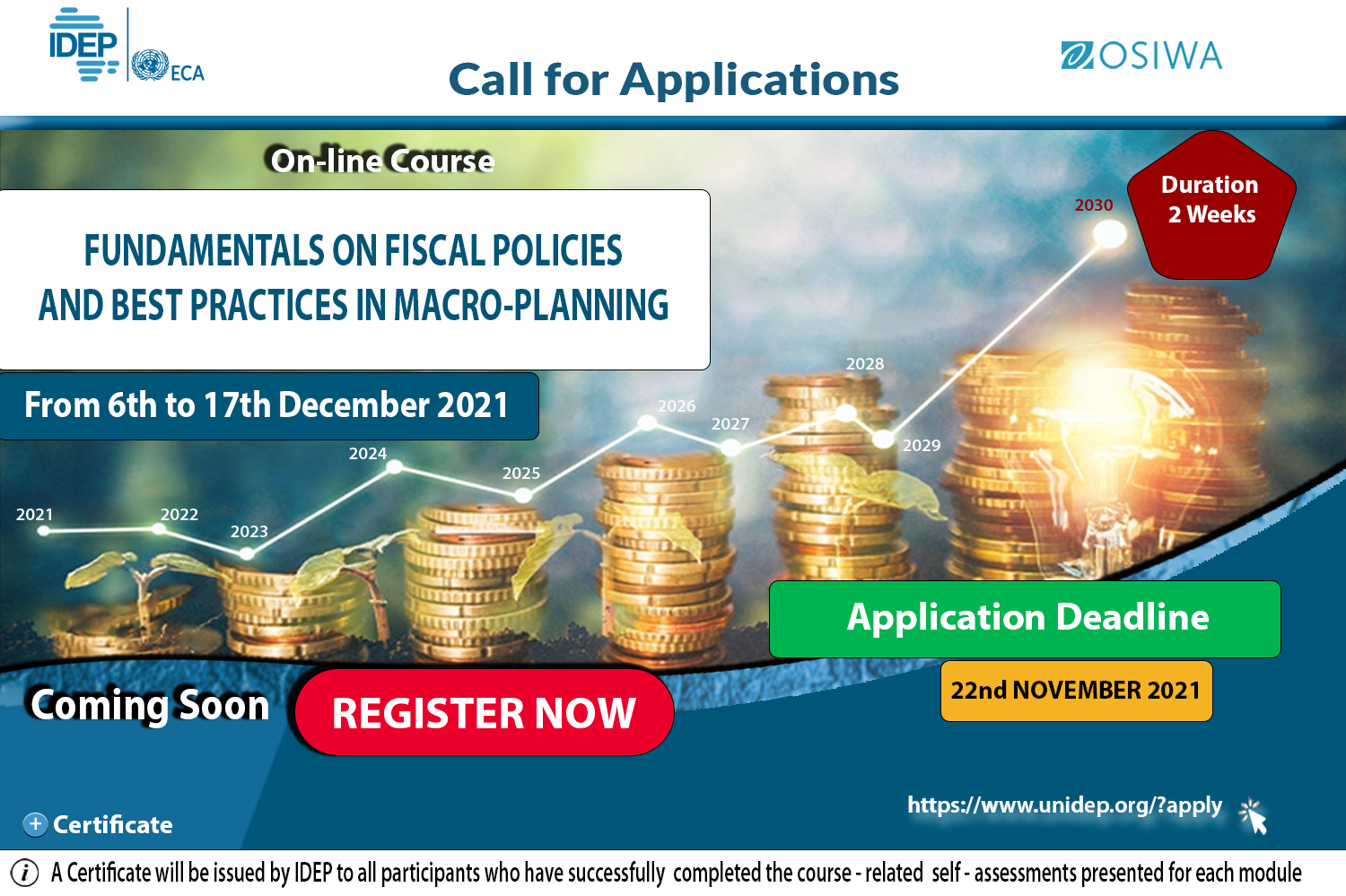 | Announcement in Brief| Type : | Self-paced Course | | Programme Area : | Macroeconomic planning and Financing for Development | | Beginning of the course : | 6th – 17th december 2021 | | Duration : | 2 Weeks | | Language : | Bilingual (English & French) | | Location : | Web Based E-Learning | | Fee : | No Fee | | Application Deadline : | 22nd November 2021 | | Specific target audience : | No | | Website : | https://services.unidep.org/e-idep | | Applications : | https://www.unidep.org/?apply |
|
PROGRAM RATIONALE
With the onset of the COVID-19 pandemic, the world economy has been hit severely. In particular, developing countries that were already suffering from the debt burden fell in a stressful situation with respect to the mobilization of sufficient resources to address the negative impact of the crisis on health, social and economic systems. This situation highlights the efforts required in macroeconomic planning to cope with emergencies in Africa. The United Nations Economic Commission for Africa (ECA) has made a substantial work on the requirements for an economic and social recovery across the continent after the COVID-19 outbreak.
In the same vein, the African Institute for Economic Development and Planning (IDEP), and the Open Society Initiative for West Africa (OSIWA) recently launched a research project – “Debt, taxation and financing for development: immediate responses to global emergencies and efficient planning” - aiming at developing analytical and operational tools towards (a) – the efficiency of budget planning as an immediate response to the social and economic impacts of COVID-19 in the Sub-Saharan countries; (b) - financing for development by means of domestic resource mobilization towards responsive health systems and medical research (via debt management and efficient fiscal systems); (c) – ways of channeling financial resources stemming from debt alleviation into immediate responses to global emergencies, with the main focus at COVID-19. The countries of focus of this study are Benin, Côte d’Ivoire, Ghana, Guinea, Liberia, Mali, Niger, Nigeria, Sierra Leone and Senegal.
Whereas the project’s research outputs will consist in publications related to the above-mentioned countries as well as an on-line training on effective fiscal policies and best practices in macroeconomic planning for immediate responses to emergencies such as COVID-19, the current on-line course is one of the “hands-on-approach” component of the project “Debt, taxation and financing for development: immediate responses to global emergencies and efficient planning”, currently at a fully implementation stage, on both training and research components.
LEARNING OBJECTIVES
The course aims to strengthen the capacity of African policy makers on the best practices in terms of macroeconomic planning and fiscal policies for effective and immediate response to emergencies such as COVID-19.
Specifically, the training will focus on the role and functioning of fiscal policy with regard to sustainable development with some concrete experiences in Africa based on the results of the country-case studies. The course will also look at the nexus between fiscal policy and macro-planning and highlight some best practices in this regard.
